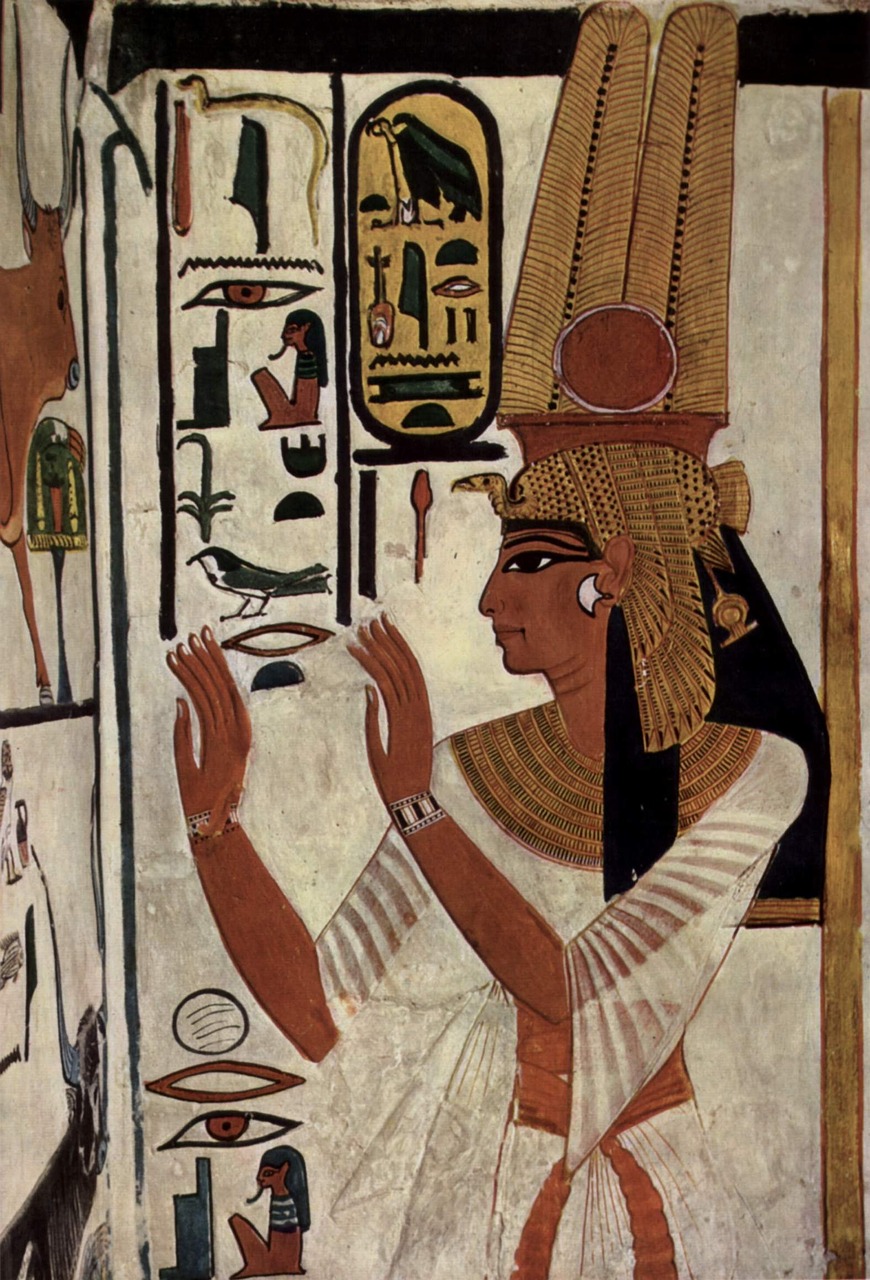An exploration of Jeremiah 10s warning against idolatry, call to true worship, and its connection to Jesus teachings on authentic devotion, emphasizing the timeless significance of these teachings and the need to embrace true worship and authentic devotion in modern-day spiritual practices.

Photo by Hannah Busing on Unsplash | Commercial use allowed
Jeremiah 10: Understanding the Warning Against Idolatry
The warning against adopting the idolatry of the surrounding nations in Jeremiah 10 is a poignant reminder to the Israelites of the grave consequences of straying from the path of true worship. The passage not only urges them to resist the allure of idolatrous practices prevalent in their environment but also highlights the detrimental impact of embracing such practices. By vividly describing the characteristics of the idols as worthless and foolish, the passage aims to illustrate the stark contrast between the greatness and uniqueness of the Lord and the insignificance of the idols. For instance, while the idols are lifeless and powerless, the Lord is depicted as the creator and provider of all things, emphasizing His supremacy over all creation. The passage’s emphasis on the impending exile of the people as a consequence of their rebellion and idolatry serves as a sobering warning, underscoring the severity of deviating from true worship. The impending exile signifies the judgment and discipline that await those who abandon genuine devotion to the Lord, reinforcing the gravity of idolatry and its repercussions.
Moreover, the warning in Jeremiah 10 not only addresses the immediate context of the Israelites but also carries timeless significance for believers across generations. It serves as a cautionary tale, reminding individuals of the perennial struggle against idolatry and the enduring need for unwavering commitment to authentic worship. The passage prompts introspection and self-examination, compelling individuals to evaluate their own lives and identify any modern forms of idolatry that may have subtly crept in, such as the worship of material possessions, status, or self-gratification. By understanding the warning against idolatry in Jeremiah 10, individuals can cultivate a deeper appreciation for the purity of true worship and strive to align their hearts with the reverence and adoration due to the Lord alone.
In essence, the warning against idolatry in Jeremiah 10 serves as a timeless beacon, guiding believers to recognize the insidious nature of idol worship and to wholeheartedly embrace the truth and supremacy of the Lord. It stands as a testament to the enduring relevance of God’s call for His people to shun false gods and uphold unwavering loyalty to Him, resonating with the unchanging nature of God’s expectations for His followers. Therefore, the passage not only provides historical insights into the struggles of the ancient Israelites but also offers invaluable wisdom for contemporary believers, inspiring them to guard their hearts against the allure of idolatry and to wholeheartedly pursue authentic devotion to the one true God [3].
The passage of Jeremiah 10, specifically verses 3-5, emphasizes the futility of idol worship by depicting the process of creating and adorning idols. It paints a vivid picture of the lifeless nature of these man-made objects, contrasting them with the living and powerful nature of the Lord. This visual imagery serves to reinforce the inherent worthlessness of idolatry and the supreme greatness of God, compelling the Israelites and contemporary believers alike to revere and worship the Almighty alone. Furthermore, the passage’s depiction of impending exile as a consequence of idolatry serves as a poignant warning, illustrating the severe repercussions of turning away from true worship and embracing false gods.
The timeless significance of Jeremiah 10 extends beyond its immediate historical context, resonating with believers across different eras and cultures. The enduring message of the passage transcends temporal boundaries, addressing the universal human struggle against idolatry and the perpetual need for authentic devotion to the one true God. It serves as a steadfast guide, directing individuals towards genuine worship and unwavering commitment to the Lord, while also prompting them to examine their lives for any subtle forms of idolatry that may have infiltrated their hearts and practices. The warning against idolatry in Jeremiah 10, therefore, remains a beacon of truth and a call to true worship, inspiring believers to uphold the timeless principle of honoring the Lord alone and shunning the deceptive allure of false gods.
 Call to True Worship in Jeremiah 10
Call to True Worship in Jeremiah 10
Jeremiah 10 fervently emphasizes the call for genuine and sincere worship of the Lord, portraying His unparalleled uniqueness and power in stark contrast to the idols of the surrounding nations. The chapter underscores the inherent worthlessness and foolishness of these idols, urging the Israelites to turn their hearts and devotion solely to the one true God. The call to true worship is not merely a theological concept but a practical, life-altering invitation for the people to align their lives with the authority and sovereignty of the Lord. This aligns with the fundamental essence of worship, which encompasses not only the act of praise but a complete surrender of one’s life and will to the divine Creator.
Moreover, the prayer for God’s justice and mercy in dealing with the nations and the people of Judah reveals the profound human need for divine intervention amidst the impending consequences of idolatry and rebellion. It reflects the yearning for righteousness and restoration in a time of moral decay and spiritual decline. This prayer captures the essence of the prophetic call for repentance and the restoration of a genuine relationship with God, echoing the sentiment expressed in Jeremiah 10 to return to true worship and wholehearted devotion to the Almighty. The call for justice and mercy is a plea for divine intervention and redemption, reflecting the deep-seated desire for reconciliation and renewal in the face of impending judgment and exile [1][2].
The call to true worship in Jeremiah 10 is intricately woven with the portrayal of God’s greatness and uniqueness, underscoring the imperative for sincere and devoted adoration of the Almighty. It serves as an unequivocal directive for believers to center their lives on the worship of God, recognizing His unmatched sovereignty and authority. The passage’s emphasis on the futility of idolatry and the call for genuine worship resonates with the fundamental purpose of humanity – to recognize and honor the divine Creator. Furthermore, the prayer for God’s justice and mercy reflects the deeply rooted human longing for divine intervention and restoration, encapsulating the universal yearning for righteousness and reconciliation in the presence of impending judgment and moral decay.
 Jesus’ Teachings on Authentic Devotion and its Connection to Jeremiah 10
Jesus’ Teachings on Authentic Devotion and its Connection to Jeremiah 10
In the Gospels, Jesus emphasized the importance of authentic devotion and true worship, echoing the call in Jeremiah 10 for genuine reverence and adoration of the Lord. Jesus confronted the religious leaders of his time, admonishing them for their outward displays of piety while their hearts were far from God, aligning with the essence of Jeremiah 10’s call to true worship. For instance, in the Gospel of Matthew, Jesus quoted the prophet Isaiah, saying, “These people honor me with their lips, but their hearts are far from me” (Matthew 15:8). This resonates with the warning in Jeremiah 10 against superficial worship and the true desire for authentic devotion from the heart.
Furthermore, Jesus’ teachings on authentic devotion and the connection to Jeremiah 10 highlight the enduring relevance of God’s expectation for His people to worship Him sincerely. Through parables and direct teachings, Jesus emphasized the need for inward transformation, stressing that true worship arises from a heart that is surrendered to God. For instance, in the parable of the Pharisee and the tax collector (Luke 18:9-14), Jesus illustrated the contrast between self-righteousness and genuine humility before God. This resonates with the call in Jeremiah 10 for the Israelites to turn away from pride and idolatry and to humbly worship the one true God. Therefore, the connection between Jeremiah 10 and Jesus’ teachings serves as a poignant reminder of the timeless importance of authentic devotion and the rejection of false worship.
#Jeremiah10 #WarningAgainstIdolatry #CalltoTrueWorship #JesusTeachingonAuthenticDevotion #GenuineWorship #SpiritualAuthenticity #FalseGods #SincereDevotion #WorshipingGodAlone
The teachings of Jesus on authentic devotion and true worship provide a foundational framework for believers to cultivate a deep and meaningful relationship with the divine. By echoing the call to genuine worship expressed in Jeremiah 10, Jesus underscores the enduring significance of wholehearted devotion to the Almighty. His teachings emphasize the inward transformation of the heart, aligning with the essence of Jeremiah 10’s plea for the Israelites to turn away from empty idolatry and to embrace sincere worship of the one true God. Furthermore, the parables and confrontations with religious leaders in the Gospels serve as compelling illustrations of the timeless importance of authentic devotion and the rejection of superficial worship. This connection between the teachings of Jesus and the call to true worship in Jeremiah 10 reinforces the enduring nature of God’s expectation for His people to honor Him with genuine reverence and unwavering commitment, transcending temporal and cultural boundaries.
Misuse and Interpretation of Jeremiah 10
Addressing the misuse and misinterpretation of Scripture, including Jeremiah 10, is crucial in elucidating the true meaning of the passage and dispelling misconceptions. Factors contributing to the misinterpretation of Jeremiah 10 include a lack of biblical knowledge and the misapplication of the text, emphasizing the need for a thorough understanding of its original context to avoid misrepresentation [1].
Furthermore, it’s essential to recognize that Jeremiah 10 is actually addressing the idolatry of carving and worshipping false gods, rather than the modern practice of having Christmas trees. This distinction is significant as it clarifies the original context of the passage and dispels the misconceptions regarding its association with Christmas celebrations. For instance, the passage is a warning against adopting the idolatrous practices of the surrounding nations, stressing the consequences of rebellion and idolatry, rather than a commentary on modern festive traditions. Understanding these distinctions can help prevent the misapplication of biblical passages and foster a more accurate interpretation of the Scriptures.
Moreover, the misinterpretation of Jeremiah 10 should serve as a reminder for believers to approach the study of the Bible with humility, seeking guidance from reputable sources and exercising discernment. In doing so, we can avoid falling into the trap of misrepresenting God’s Word and instead gain a deeper understanding of the timeless messages and teachings encapsulated within the Scriptures [1].
The misinterpretation of Jeremiah 10 has led to misconceptions about its relevance to modern practices, particularly the association with Christmas trees. Some individuals have mistakenly used the passage to condemn the tradition of adorning Christmas trees, overlooking its original context and intended message. This misapplication of the text highlights the importance of understanding the historical and cultural backdrop of biblical passages to avoid misrepresentation and misinterpretation. Furthermore, the need for discernment and humility in approaching the study of Scriptures becomes evident, emphasizing the significance of seeking accurate and informed perspectives to gain a deeper understanding of the timeless truths encapsulated within the Bible.
Jeremiah 10 and Modern Christmas Celebrations
It’s crucial to understand the original context of Jeremiah 10 to dispel misconceptions about its association with modern Christmas practices, particularly the tradition of having Christmas trees. Despite some claims that Jeremiah 10 condemns the use of Christmas trees, it’s important to note that the passage is actually addressing the idolatry of carving and worshipping false gods, which is distinct from the modern custom of decorating trees during the holiday season.
In Jeremiah 10, the prophet highlights the folly of crafting and worshiping idols, emphasizing the contrast between the true God and man-made objects of worship. This warning against idolatry is rooted in the cultural and religious practices of ancient times and is not directly related to the contemporary tradition of adorning Christmas trees. Therefore, it’s essential to approach the interpretation of biblical passages with a deep understanding of their historical and cultural contexts to avoid misinterpretation and misrepresentation.
The misrepresentation of Jeremiah 10 in relation to modern Christmas celebrations underscores the need for a nuanced understanding of biblical passages and their intended messages. By recognizing the cultural and historical context of the passage, individuals can gain a more accurate understanding of its significance and avoid misleading interpretations. The distinction between the idolatry addressed in Jeremiah 10 and the contemporary tradition of adorning Christmas trees highlights the importance of contextual awareness and discernment in interpreting the Scriptures. This serves as a reminder for believers to approach the study of the Bible with diligence and humility, seeking to comprehend the timeless truths encapsulated within its pages while avoiding misconceptions and misapplications.
 The Significance of Gifts in Light of Jeremiah 10
The Significance of Gifts in Light of Jeremiah 10
When we consider the practice of giving gifts at Christmas in the light of Jeremiah 10, we can appreciate the profound spiritual significance it holds. The act of giving gifts during the Christmas season aligns with the central message of Jeremiah 10, highlighting the celebration of the greatest gift of all – the giving of God’s son for the redemption of humanity. This connection emphasizes the importance of recognizing and celebrating the ultimate gift of salvation, reflecting the essence of authentic devotion and true worship in the Christian faith.
Furthermore, the giving of gifts at Christmas serves as a tangible expression of love, generosity, and gratitude, mirroring the divine love and grace exemplified in the message of Jeremiah 10. Just as God’s love and mercy are demonstrated through the gift of His son, the tradition of exchanging gifts during Christmas becomes a reminder and reflection of this profound act of divine love and sacrifice. As such, the practice of giving gifts during the festive season not only symbolizes the joy of giving and receiving but also serves as a powerful representation of the spiritual truth encapsulated in Jeremiah 10, emphasizing the ultimate gift of redemption and eternal life through Jesus Christ.
The tradition of giving gifts during Christmas resonates with the profound spiritual truth encapsulated in Jeremiah 10, reflecting the ultimate act of divine love and sacrifice in the giving of God’s son. This tradition becomes a tangible expression of the love, generosity, and gratitude emblematic of the Christian faith, mirroring the divine love and grace extended to humanity. By exchanging gifts, individuals not only partake in the joy of giving and receiving but also symbolize the spiritual significance of the ultimate gift of salvation through Jesus Christ. The act of giving gifts becomes a poignant reminder of the profound act of divine love and sacrifice, aligning with the central message of Jeremiah 10 and emphasizing the spiritual significance of the Christmas season.
Contextual and Cultural Significance of Jeremiah 10
The cultural backdrop of Jeremiah 10 sheds light on the prevalent idolatrous customs and the allure of adopting the religious practices of neighboring nations. The Israelites were at risk of forsaking their unique relationship with the Almighty God and embracing the worthless and futile idols of the pagan cultures around them. By understanding the specific cultural challenges faced by the Israelites, we can appreciate the urgency and relevance of the warning against idolatry in our own lives today. It serves as a timeless reminder to remain steadfast in true worship and to guard against the allure of false gods and worldly influences that can lead us astray from authentic devotion.
The historical and cultural context of Jeremiah 10 provides crucial insights into the prevalent religious and societal dynamics of the time. The passage was penned during an era when the Israelites were confronted with the allure of idolatrous practices prevalent in the surrounding nations. These practices posed a significant threat to the spiritual fidelity of the Israelites, prompting the urgent need for a call to true worship and a warning against idolatry. By recognizing the specific cultural challenges and influences faced by the Israelites, we can glean insights into the enduring relevance of the passage, as it serves as a timeless beacon of truth and a call to genuine devotion in the face of perennial human struggles with false gods and worldly enticements.
Lessons for Modern Devotion from Jeremiah 10
Applying the lessons from Jeremiah 10 to contemporary spiritual devotion is essential in recognizing and avoiding modern forms of idolatry, encouraging genuine devotion and sincere worship [3]. The relevance of Jeremiah 10 in guiding spiritual practices today underscores its enduring significance and the timeless wisdom it provides [3].
Moreover, the warning against idolatry in Jeremiah 10 serves as a poignant reminder for modern believers to assess their own lives and hearts. It prompts individuals to reflect on the potential idols that may have subtly crept into their lives, such as material possessions, status, or even personal ambitions. By drawing parallels between the idolatrous practices of ancient Israel and the prevalent distractions of modern society, Jeremiah 10 urges believers to reevaluate their priorities and refocus their devotion on God alone. This powerful message resonates with contemporary audiences, compelling them to seek authentic and unwavering worship of the one true God.
Furthermore, the call to true worship in Jeremiah 10 presents a timeless challenge for believers to wholeheartedly devote themselves to God. In a world where superficiality and insincerity often permeate various aspects of life, Jeremiah’s call for genuine worship stands as a beacon of truth. It calls for a deliberate and intentional pursuit of authentic devotion, inspiring modern-day believers to cultivate a deep and meaningful relationship with God. This emphasis on sincere worship and true spiritual connection serves as a guiding principle for navigating the complexities of contemporary society while remaining steadfast in faith and devotion [3].
The call to true worship and the warning against idolatry in Jeremiah 10 provide invaluable insights for believers in the modern era, prompting them to examine their own lives and spiritual practices. By drawing parallels between the struggles of ancient Israel and the contemporary challenges faced by individuals, the passage serves as a timeless guide for recognizing and avoiding modern forms of idolatry. The call to wholehearted devotion and the rejection of false gods remains an enduring directive for believers, compelling them to reevaluate their priorities and refocus their worship on the one true God. The lessons embedded in Jeremiah 10 resonate with the perennial human struggle against idolatry and the enduring need for genuine devotion, transcending temporal and cultural boundaries.
 Embracing True Worship and Authentic Devotion
Embracing True Worship and Authentic Devotion
Embracing true worship and authentic devotion is an essential aspect of spiritual growth and connection with the divine. Jeremiah 10 emphasizes the call to true worship, highlighting the uniqueness and power of the Lord compared to the idols of the nations. This call serves as a timeless reminder for individuals to seek genuine and heartfelt devotion to the one true God, recognizing His greatness and supremacy over all creation [1].
Furthermore, Jesus’ teachings on authentic devotion align with the principles outlined in Jeremiah 10, underscoring the importance of cultivating a sincere and unwavering commitment to God. For instance, in the Sermon on the Mount, Jesus instructs his followers to worship in spirit and in truth, emphasizing the inward sincerity and genuine reverence that should accompany their worship. This alignment between Jeremiah 10 and Jesus’ teachings underscores the enduring relevance of embracing true worship and authentic devotion, transcending cultural and temporal boundaries.
Embracing true worship and authentic devotion is not only a foundational aspect of the Christian faith but a transformative journey that shapes the spiritual identity of believers. The call to wholehearted devotion, as emphasized in Jeremiah 10, resonates with the enduring need for genuine worship and unwavering commitment to the Almighty. By recognizing the inherent greatness and uniqueness of God, individuals are compelled to embrace the call to true worship, aligning their lives with the authority and sovereignty of the Lord. Furthermore, the teachings of Jesus on authentic devotion provide a guiding framework for believers to cultivate a deep and meaningful relationship with the divine, emphasizing the enduring significance of genuine reverence and unwavering commitment to God. This alignment between the principles outlined in Jeremiah 10 and the teachings of Jesus underscores the timeless importance of embracing true worship and authentic devotion, transcending cultural and temporal boundaries.



